On Clouds, Since August
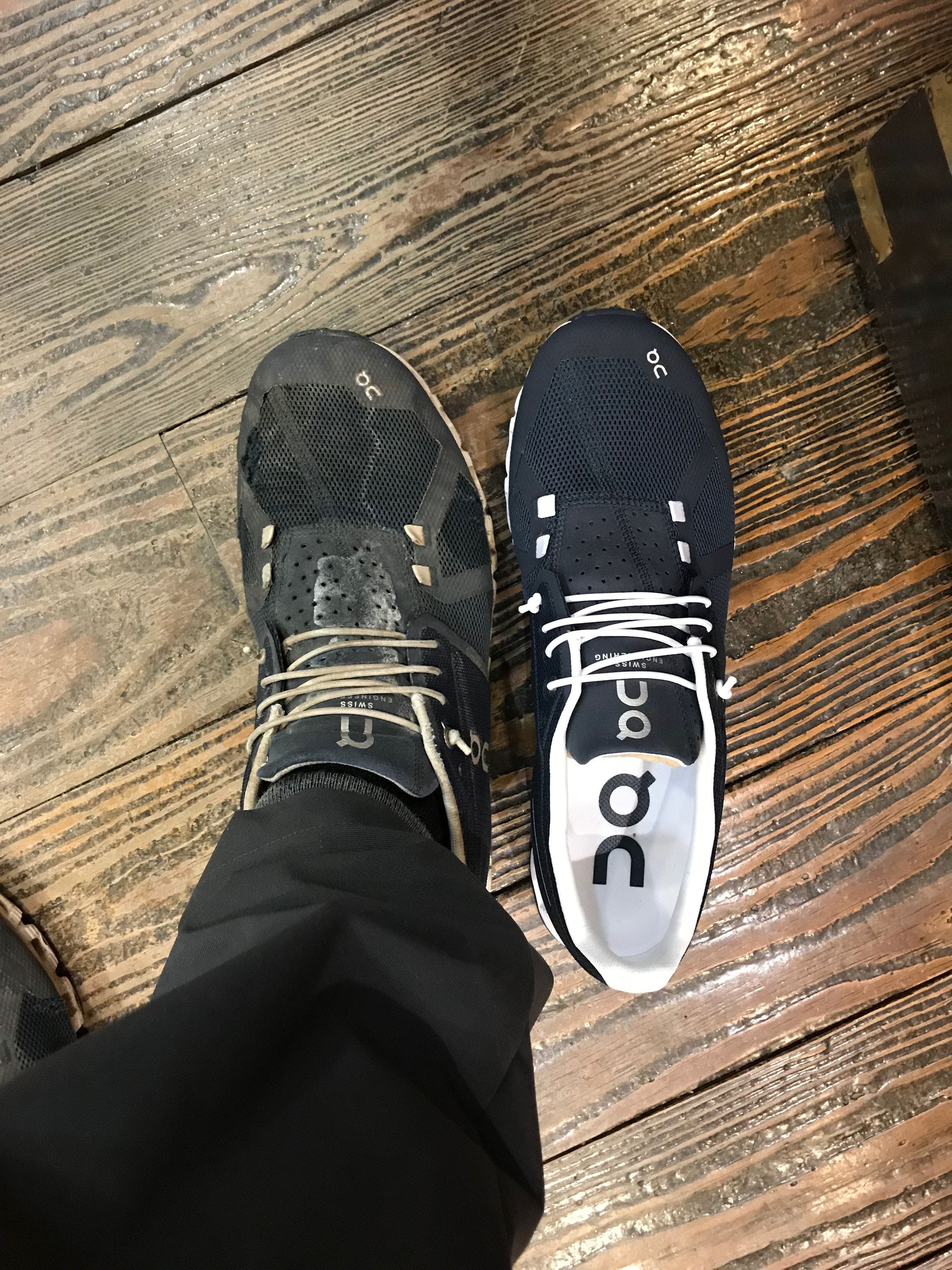

2016, from Industrious
2018, from Industrious
This morning, I woke up at 5:30am to pack my Osprey Farpoint1 and brush my teeth.
I then rode with Scott about 5 minutes down the road to the ride share carpark. A couple minutes later, Jonathan rolled up and we swapped Hondas.
It was pitch black outside, and the soothing tones of NPR permeated the environment.
But then Scott and Jonathan started chatting and sharing with me what they usually do to pass the time. We considered listening to a podcast, but then they decided to bring up some of the major topics they discuss on the way to work.
Is Nate Silver right that the Russia Disinformation attempts in 2016 had little to no impact on the election?
How will the Trump presidency end?
Who is going to run in 2020? Who has the best chance of winning?
Would you rather live in a science fiction future, or in a fictional fantasy world in the past?
Why is there a narrative that Christmas is under attack?
What does the future of humanity look like? How will things change?
After I bloviated for a couple minutes, I realized we’d arrived at the Chick-fil-a drop point for me. I grabbed a chicken biscuit, and then hopped on the city bus. I fed the bus meter $2 and 3 quarters.
Slowly, the sky started to brighten.
Once we got downtown, I hopped off, and walked the short 2 minutes to Industrious in downtown Pittsburgh.
It was a relatively efficient 1 hour 42 minutes in to the office, commuting from Morgantown!
Next stop: Nashville.


When I got off the train and walked into the main terminal at Ogilvie Center, there was an Amazon Go right at the corner.
I had to try it.
So I hopped on their free wifi, downloaded the Amazon Go app, scanned my barcode, walked in.
The app would tell me later that I spent 2 minutes and 49 seconds in the store.
The products inside were interesting. There were two rows of potato chips, apples, and dried fruit. There was a refrigerator of drinks. But otherwise, everything inside was either prepared food or was a meal kit.
I snagged a Whole Foods 365 bottled water.
And then I walked out.
There is a sense of freedom as you move about the store, which is interesting considering you know each step you take is being tracked by cameras and sensors and algorithms.
It absolutely feels frictionless.
Some observations:
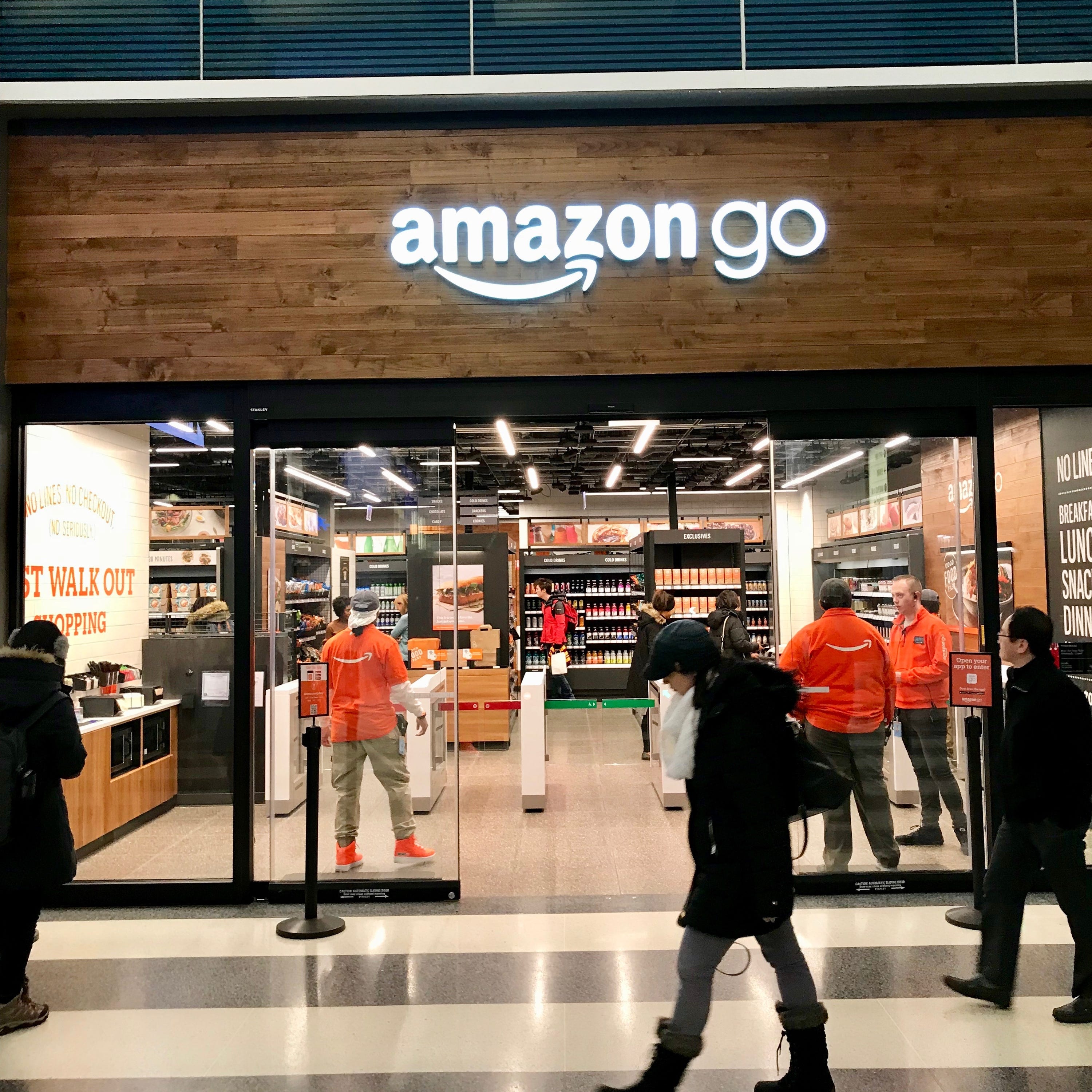
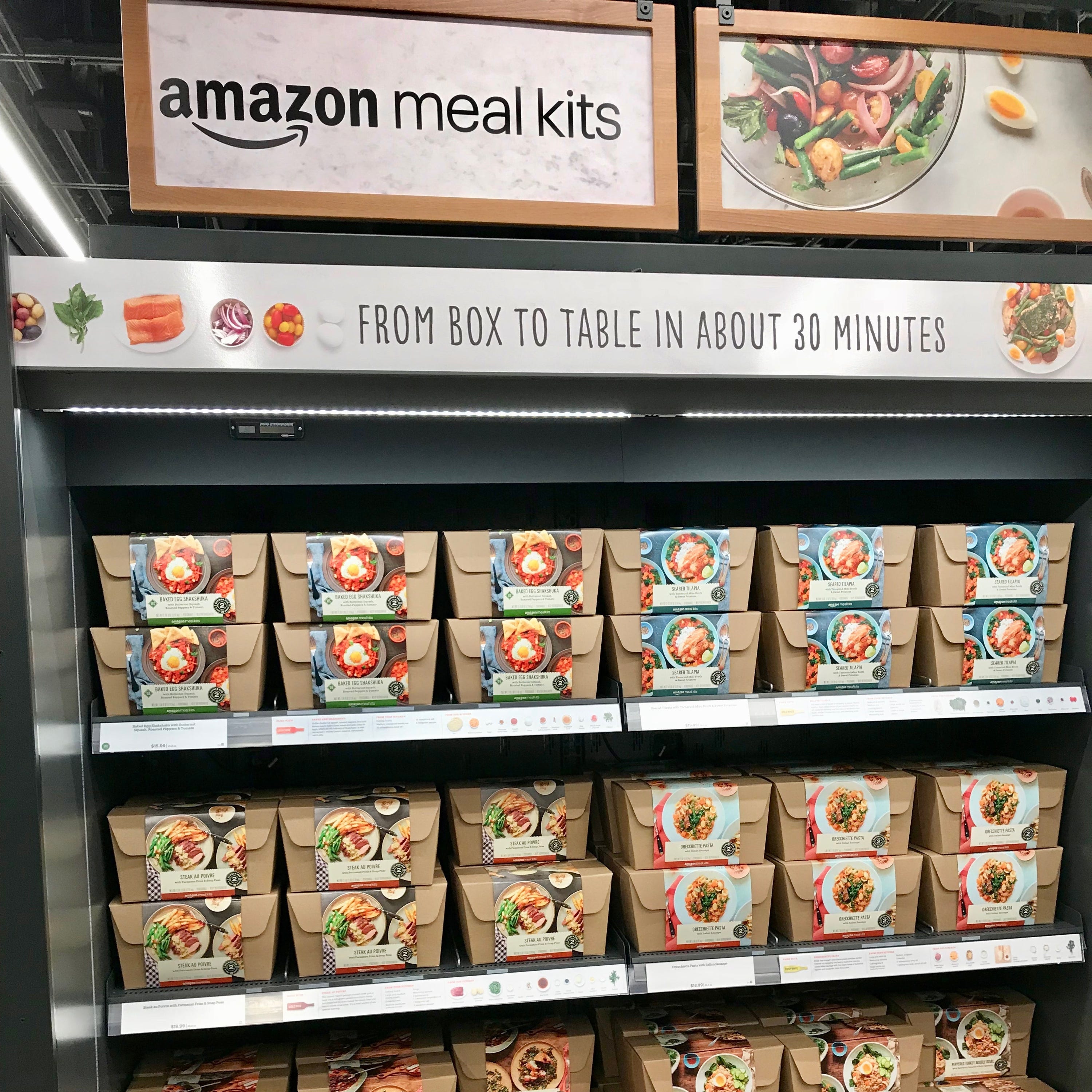

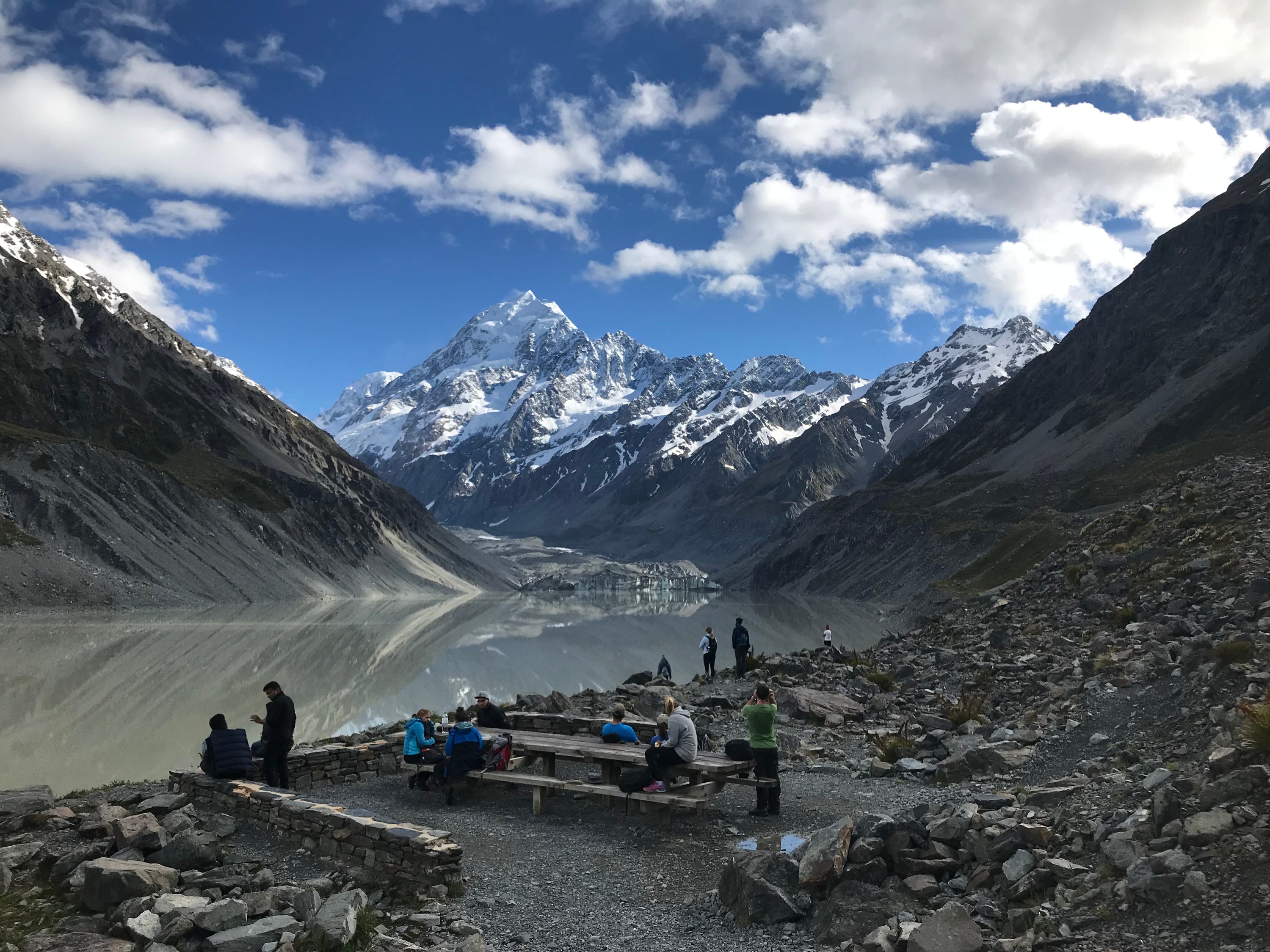
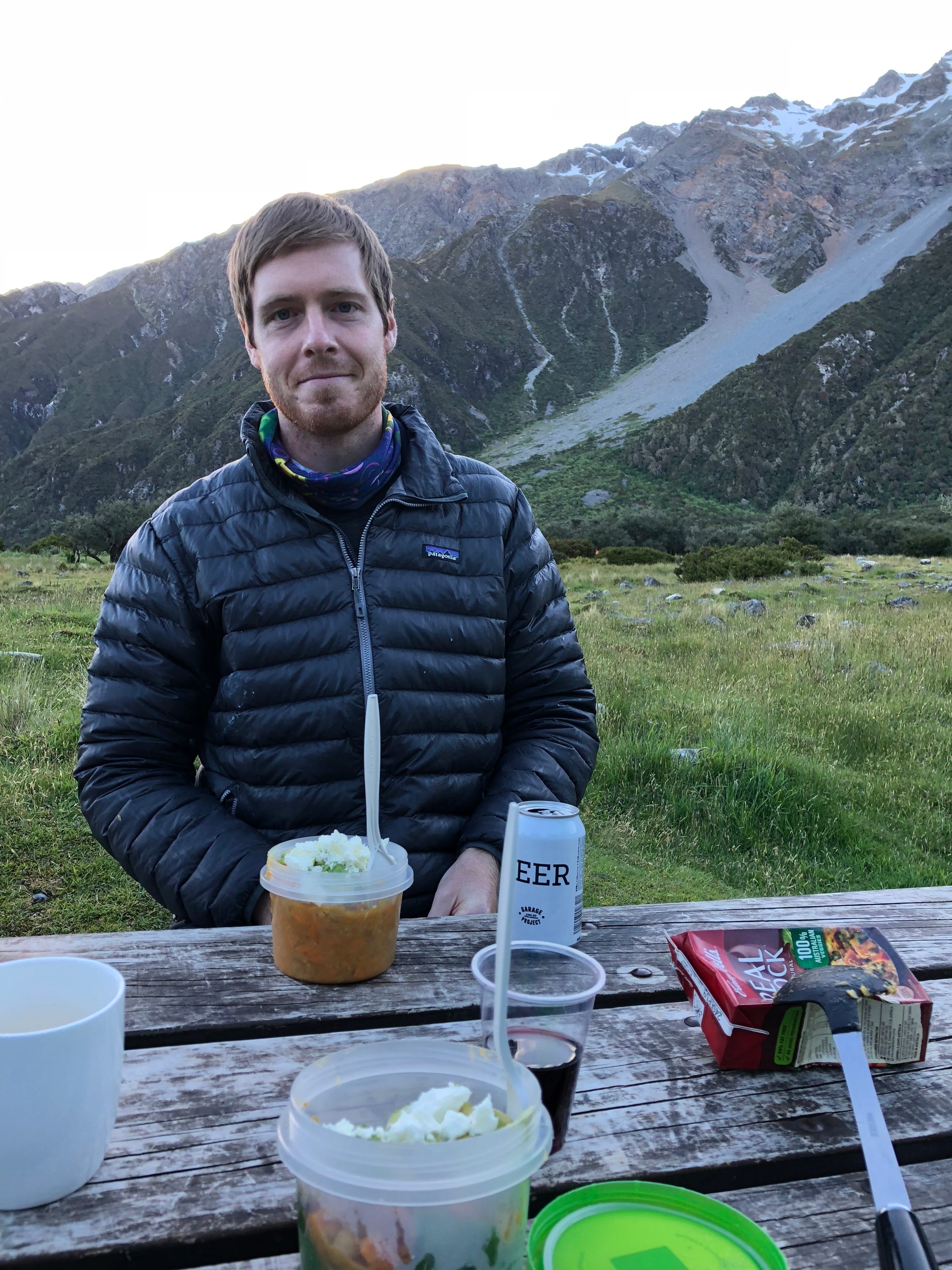
Both can get your attention.
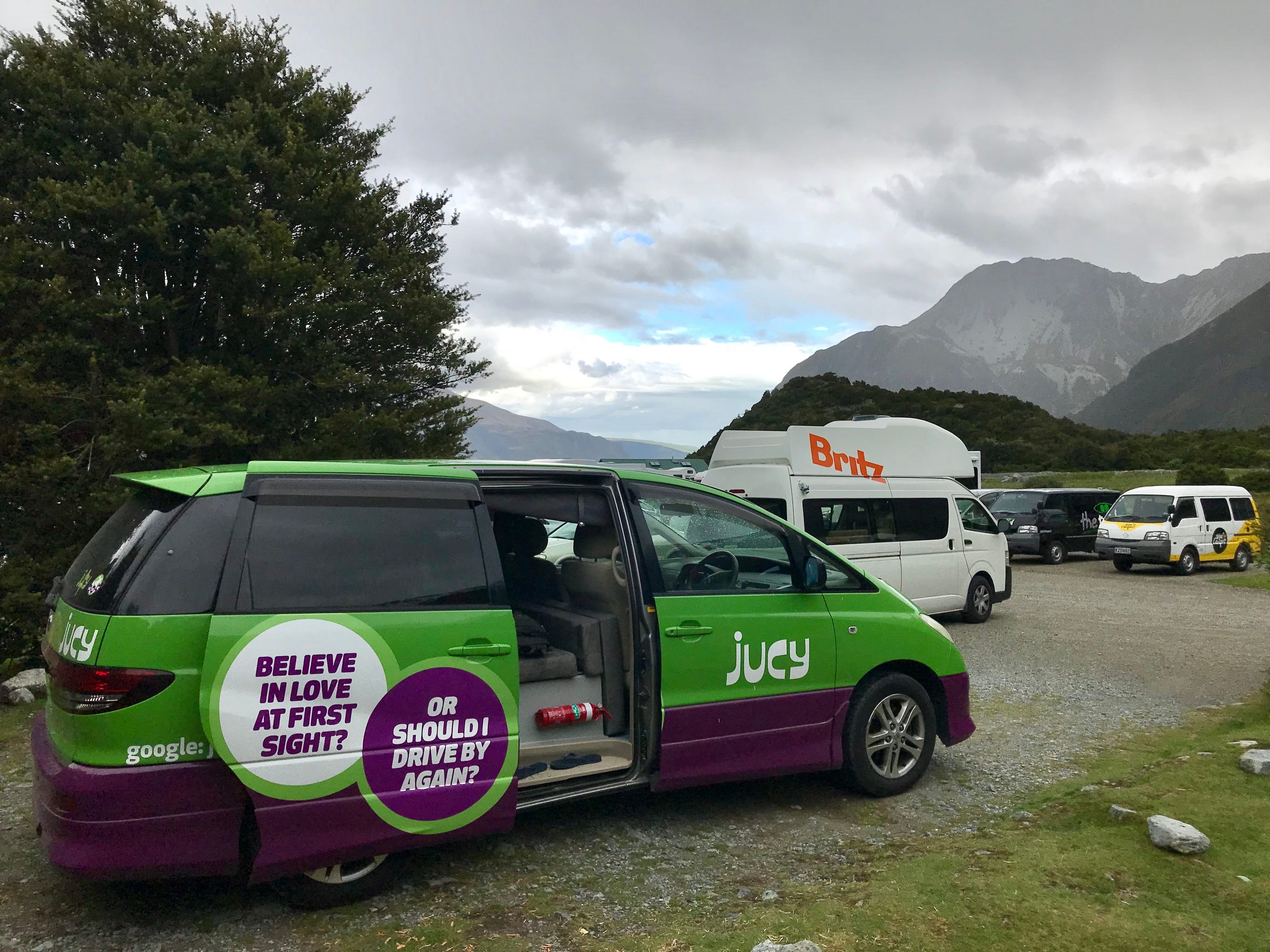
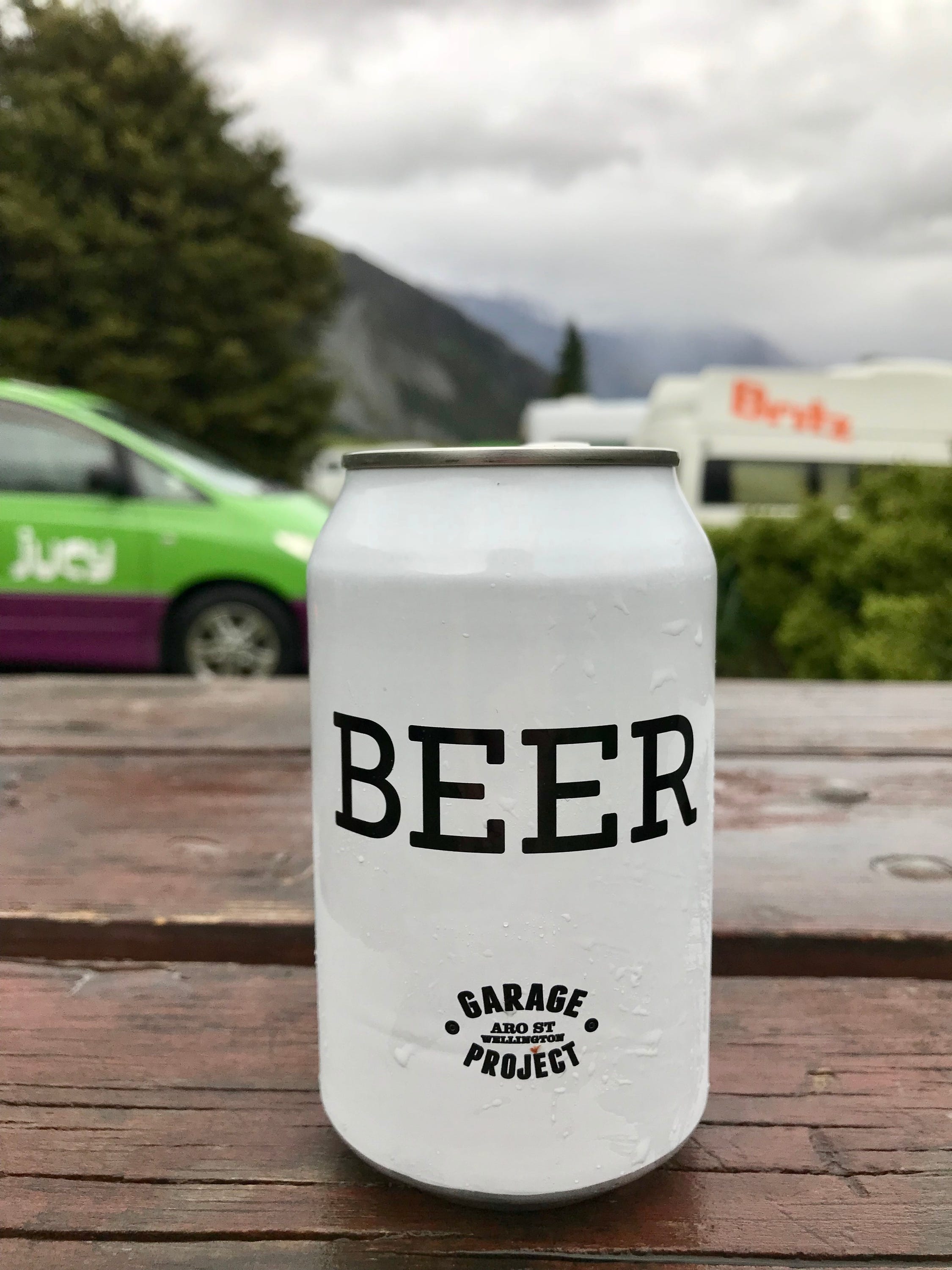
In an Atlantic profile of Sam Altman, he is quoted as saying, “Democracy only works in a growing economy. Without a return to economic growth, the democratic experiment will fail. And I have to think that YC is hugely important to that growth.”
I agree with the premise. But I disagree with the conclusion.
The irony of innovation is that it is destructive.
Innovation means making things more efficient. Efficiency means a computer can connect two callers together faster than a human operator can.
When innovation makes tasks more efficient, those tasks require less time to complete. If they require less time, they require less employees.
Innovation is destructive.
If innovation happens too quickly, perhaps the destruction happens too quickly. The rapid change of innovation is so painful that it hides the economic progress from everyone working in the economy.
It’s hard to see how the world is improving from cheaper cars when everyone in your Michigan town loses their job.
Perhaps there is an ideal rate of innovation, an ideal rate of destruction. It could be measured as a ratio between growth and destruction. Because some economic projects, such as a new road between two towns where nothing existed before, wreak less short-term destruction than companies such as Uber, which directly reduce demand for taxis.
We could call this the Destruction Index.
Because while economic growth is good for everyone (and for Democracy), innovation is not good for everyone. If innovation comes too quickly, perhaps the pain of destruction overshadows the gains of growth.
My guess is that there is a naturally-occurring balance between growth and destruction in a normal, functioning economy. A standard Destruction Index.
It’s worth thinking whether or not it’s smart to artificially skew the index by keeping the “innovation” pedal slammed to the metal.
I find it hard to focus on computer scripts when I’m sweating through my t-shirt.
While it doesn’t get mentioned in Guns Germs and Steel, I wonder how much an impact the heat has on progress.
It’s certainly harder to focus and harder to think (for me, at least) when it’s hot outside.
My ideal library is in a cozy cabin. Sitting in a comfortable chair, next to a fire, surrounded by books, looking out the window at snow on the ground.
Not outside sitting in 90 degree heat.
Middle-Northern Europe, Beijing, Russia, Japan, the Koreas, and all of the original great American cities (NYC, Philly, Boston, Detroit, Chicago) all exist at about the same latitude.
My brain is whispering Occam’s Razor.
This morning after breakfast, Elizabeth and I rode our Scoopy down to Echo beach. I dropped her off for her surf lesson, then took the bike a few hundred meters up the road to The Slow, a beautifully architected cafe. I worked and read A Philosophy Of Software Design.
The Slow
Scott called me and we argued about whether Amazon was accelerating the concentration of jobs in fewer cities, or if there was a renaissance happening in towns across the country. I think most middle-tier cities are thriving.
Elizabeth then walked to meet me. She said she stood up and balanced on her first wave! But also “drank a lot of salt water.”
We left Slow and rode our scooter to Peloton Supershop for lunch.
Canggu is a coconut-forward, dairy-free paradise. The vegan burger we had two nights ago is one of the best 5 burgers of my life - cow burgers included.
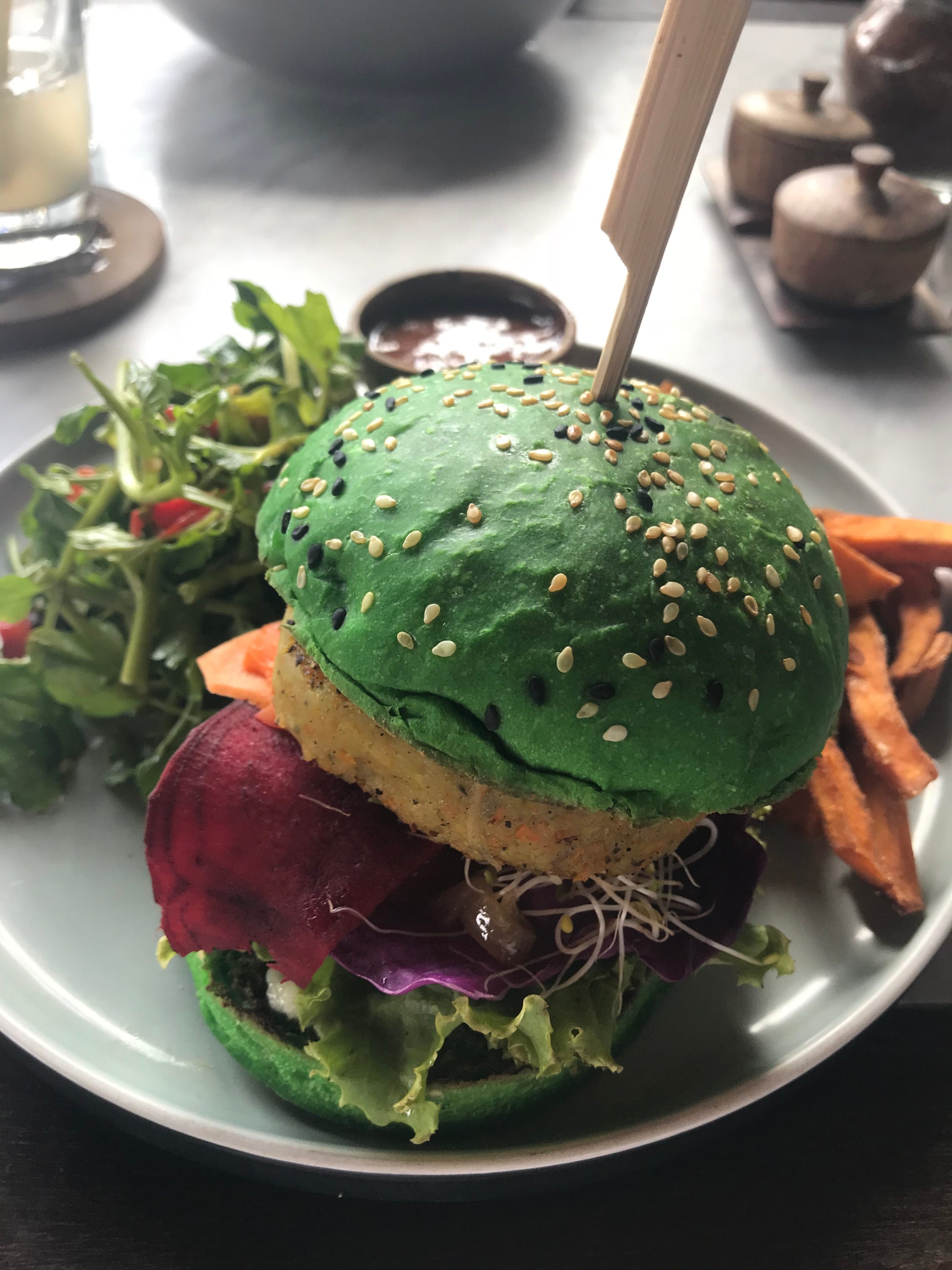
Peloton Supershop
From The Gene:
In a famous story, a medieval cosmologist is asked what holds the earth up.
“Turtles,” he says.
“And what holds up the turtles?” he is asked.
“More turtles.”
“And those turtles?”
“You don’t understand.” The cosmologist stamps his foot. “It’s turtles all the way.”
When a mother bird protects her chicks, she is being guided by proteins, proteins created from instructions contained in her DNA. Those proteins determine her behavior and emotion and appearance.
A bird is the physical result of genes creating specific proteins, which were flipped on by other genes influenced by other protein, which were flipped on by other genes influenced by other protein, all the way back to the very first embryological cell.
It’s genes, “all the way.”
To a geneticist, “nature” is the genetic code. “Nurture” is the explanation of why certain genes were activated by protein and why other genes were never activated.
But which turtle is the nature part and which is the nurture?

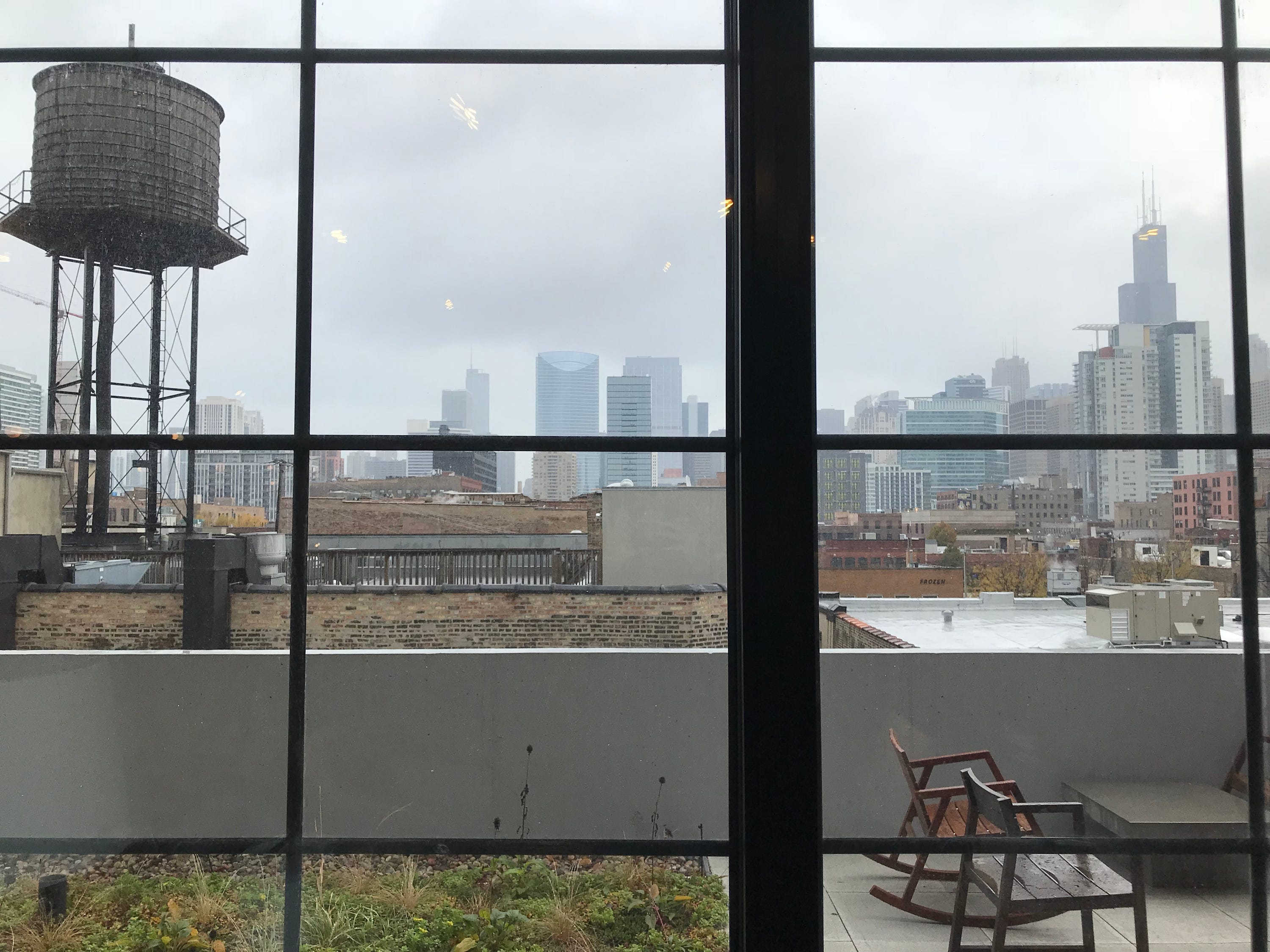
I woke up at 5am this morning to fly from Atlanta to Chicago. The next time I’ll sleep in a bed is two and a half days from now - Sunday night.
Andy and I took a Lyft to the airport.
I’m flying ATL to MDW, where I’m working from Industrious for the day.
It’s snowing in Chicago.
Tonight at 12:30am, I’ll leave O’Hare and fly to Taipei, and then onward to Bali.
Fall in Atlanta. Winter in Chicago. Summer in Bali.
[NOTE May 2020] My view of Bitcoin specifically has shifted considerably since this post. I do think the demand curve slopes downward for non-Bitcoin cryptocurrencies, though.
Some people think of Bitcoin as a Giffen Good.1 The more expensive it becomes, the more in demand it becomes. Sort of like gold.
But that’s the wrong view of cryptocurrencies. They are not Giffen Goods.
Blockchains at their hearts are computing services. To use the distributed computing network, you need coins. If coins get more expensive, then the demand for the coins goes down because the computing on the network gets more expensive.
The demand curve slopes downward.
This means there’s always a downward pressure on cryptocurrency coin prices. The more popular a network becomes, the more expensive it becomes. The more expensive it becomes, the less demand there is for that network.
As a coin’s price rises, one of two things will eventually happen.
But what about network effects? Could more people using Bitcoin, for example, increase the value of the network and increase the price of Bitcoin?
I think it depends on what the value of Bitcoin is. If it’s a store of value - if it’s a digital gold - then this might be true.
But there are three arguments for why blockchains are valuable:
If it’s a store of value, then perhaps it’s a Giffen Good and will behave like digital gold. If this is true, I think only Bitcoin will survive.
If it’s a currency, it will struggle to find adoption because cryptocurrencies are naturally deflationary. Currencies need to naturally, slowly inflate in order to encourage spending.
And if it’s a computing network, I wouldn’t expect much price appreciation. Computing tends to get cheaper, not more expensive, over time. The demand curve slopes downward, after all.
Instagram might be the downfall of “status”.
Anybody can upload airbrushed selfies. Anybody can post pictures from the gym or from the new breakfast spot or from a stage at Lollapalooza.
If you can edit pictures and photoshop your life and make Everything Look Amazing and blah blah blah, then aggressively showing off your status to win approval no longer works.
Instagram and Snapchat have broken the metric of status.
Perhaps listening and learning will become more valuable than ever.